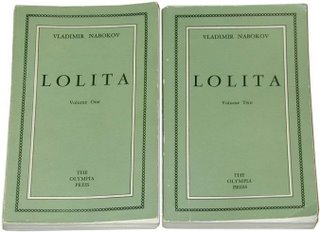
Billy Boy Arnold, I Wish You Would.
Big Joe Turner, The Chicken and the Hawk.
"Mentally, I found her to be a disgustingly conventional little girl. Sweet hot jazz, square dancing, gooey fudge sundaes...these were the obvious items in her list of beloved things. The Lord knows how many nickels I fed to the gorgeous music boxes that came with every meal we had! I still hear the nasal voices of those invisibles serenading her, people with names like Sammy and Jo and Eddy and Tony and Peggy and Guy and Patty and Rex, and sentimental song hits, all of them as similar to my ear as her various candies were to my palette."
Vladimir Nabokov, Lolita, published 1955.
Two for Humbert Humbert and poor Dolores Haze:
Billy Boy Arnold started out playing blues on the streets of Chicago with his friends Ellis McDaniel and Jody Williams, and all three wound up recording for local label Chess, performing the song "Bo Diddley", from which McDaniel got his stage name. Arnold never got along well with Chess, so he left for rival label Vee-Jay--Vee-Jay naturally was hot for more "Bo Diddley"-style songs, so Arnold went home and wrote "I Wish You Would."
"So then I'd made me get a label for the rest of my life with a Bo Diddley type of song. Which I had no intention of ever doing. I was a straight blues guy. I didn't want to be capitalizing on no Bo Diddley type of thing. But once you do something, you're stuck."
Recorded on May 5, 1955 with Jody Reynolds on guitar, Henry Gray (p), Milton Rector on electric bass and Earl Phillips (d); it was released as Vee-Jay 146 a month later. Find here.
And Big Joe Turner gets away with yet another lyric that ought to have had parents rioting in the streets. Recorded on November 3, 1955, with Connie Kay on drums (a founding member of the Modern Jazz Quartet, he would later play on Van Morrison's Astral Weeks). Released at year's end as Atlantic 1080. Find here.
To learn more of the strange publishing history of Nabokov's Lolita (first edition shown above, a pair of verdigris-colored paperbacks published in France in September '55--the book would not be allowed in the U.S. for three more years), look here. Also, Nabokov's angry rebuttals to claims made by the French publisher, Maurice Girodias ("He wanted Lolita not only because it was well written but because 'he thought that it might lead to a change in social attitudes toward the kind of love described in it.' It was a pious although obviously ridiculous thought but high-minded platitudes are often mouthed by enthusiastic businessmen and nobody bothers to disenchant them.")
No comments:
Post a Comment